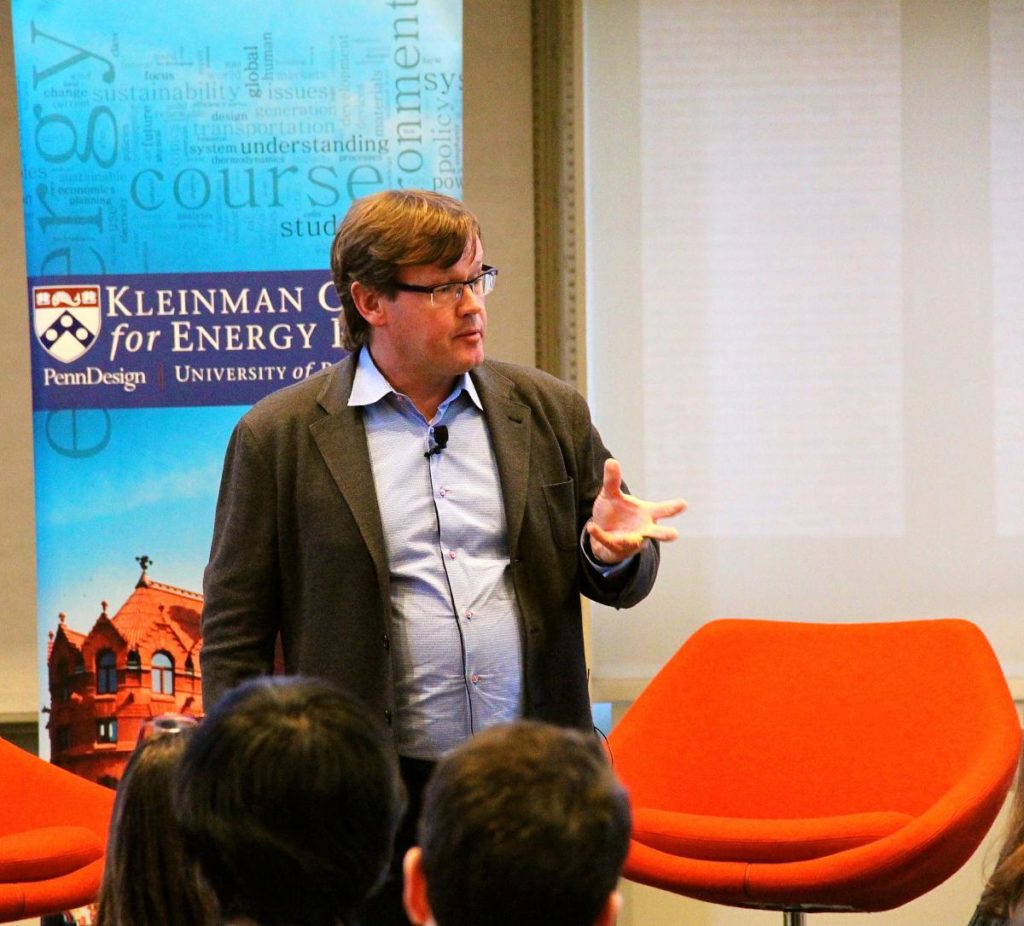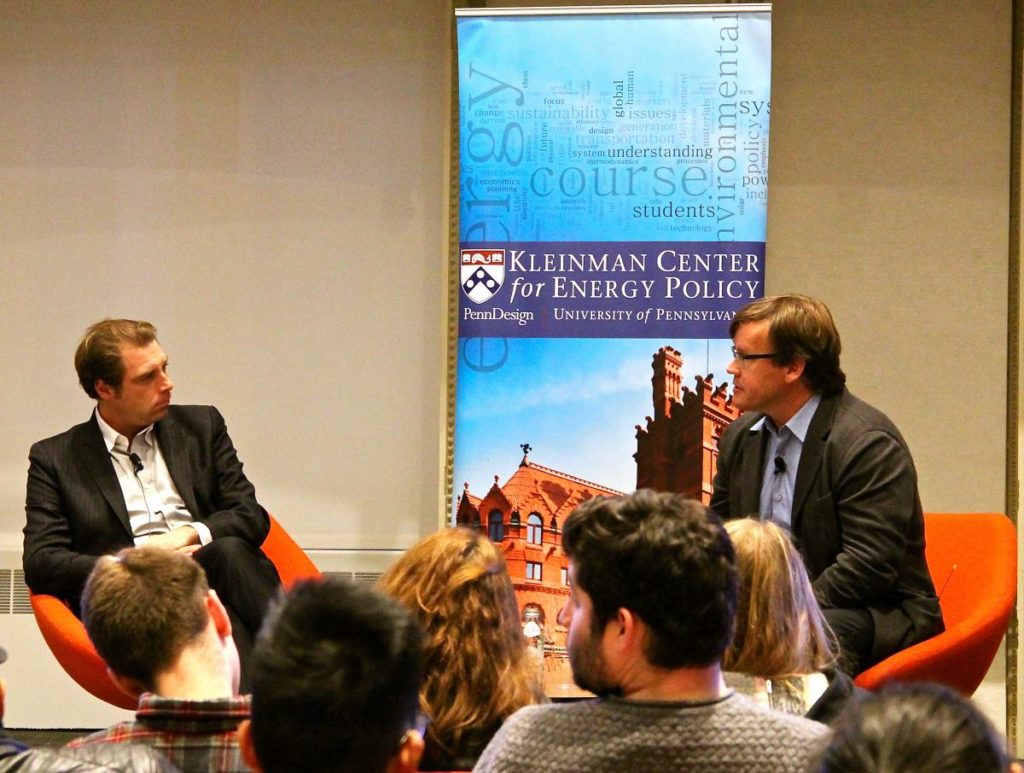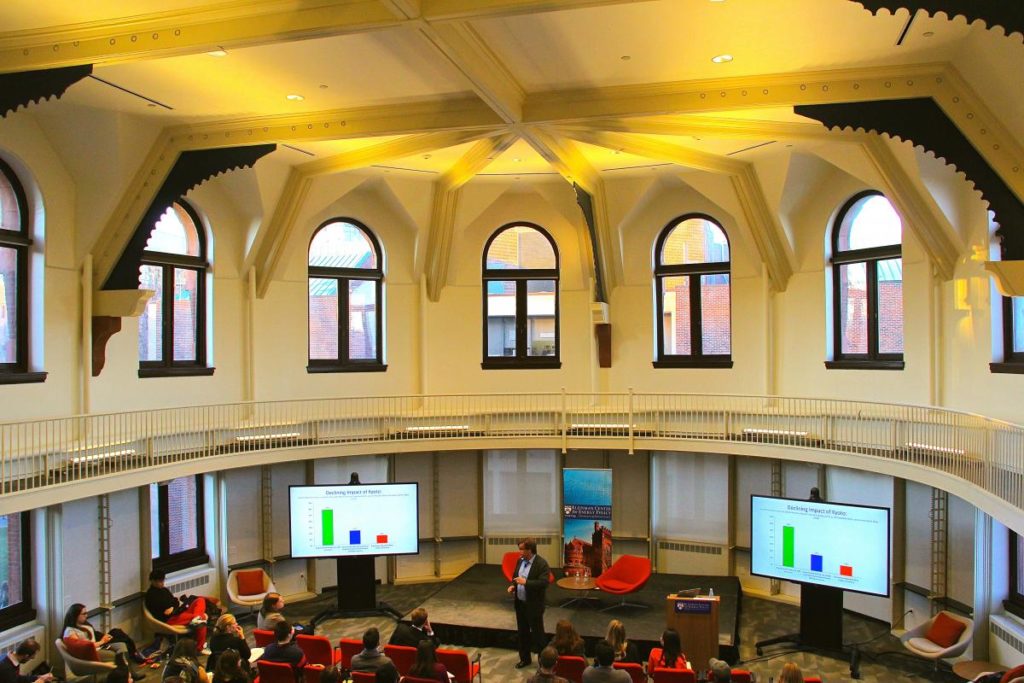
David Victor: Life After Paris
On Thursday, February 18, the Kleinman Center welcomed Dr. David Victor, Professor of International Relations at the University of California, San Diego. A trained political scientist who earned his doctorate at MIT, Dr. Victor has built his career around researching how countries handle pressing environmental problems. This presentation focused on why the recent climate talks in Paris represent a marked departure from previous efforts.

Dr. Victor opened his talk by sharing that he attended the first and second Council of Parties (COP1 and COP2), and compared the experience to seeing an aging rock band live: everyone is excited to be there, but very little gets done. He stressed that no concrete action has ever been taken on reducing emissions, and that emissions have been steadily growing during a time when we should have been taking real steps to curb them. Nevertheless, Dr. Victor believes that there is a relationship between these conferences and real policy. He structured his talk around the following four points.
1) Why have we wasted 25 years?

In the United Nations forum, it is crucial to remember that discussion of legally binding obligations leads to gridlock. Countries are very concerned about signing on to commitments they cannot meet. It is easier to move advanced technologies, which gives countries incentive to stay outside the system of emissions capping and avoid the associated economic costs. Unlike previous negotiations, the Paris agreement was built not on binding agreements but on “bottom up” pledges and flexible geometries.
2) “Pledge and review” has become the default.
The Paris talks centered around a bold goal of stopping warming at 2 degrees Celsius. However, the agreement did not create a serious review mechanism for assessing countries’ pledges, and did not create useful Intended Nationally Determined Contributions (INDCs).
3) Will Paris stop warming at 2 degrees?
This represents a collective goal, but according to Dr. Victor, it is important to ask questions about the models that are shaping international goals. Without having a real conversation about 2 degrees, we cannot determine whether a more ambitious goal is in fact feasible.
4) This requires an innovation policy.
Ultimately, we lack the technology we need to achieve our climate goals. As the political arena will not tolerate a significant increase in costs, we must increase the push on the innovation side. Only a limited number of countries truly matter in the effort to reduce emissions, and we can make real progress in small groups. The Paris agreement is flexible, and was designed to allow groups of countries to work together.

Dr. Victor emphasized that legitimacy, for nations, comes from participating in the negotiations and showing that you are taking active steps. Climate change issues are hard to address politically, and nations must change their behavior in order to benefit other societies in the future. With regard to the upcoming presidential election, Dr. Victor noted that it matters who wins the White House; making progress in climate and energy policy requires a certain style of governance and collaboration, along with the willingness to make these efforts a foreign policy priority.
